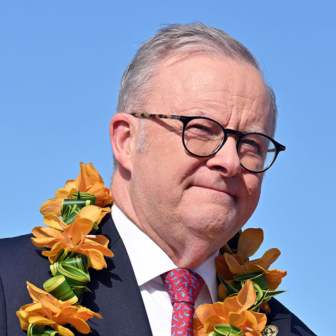It is remarkable how something built over a quarter of a century can begin to crumble in a matter of hours. So appears to be the case for the Phnom Penh Post, Cambodia’s oldest English-language newspaper.
Earlier this month, Australian businessperson Bill Clough sold the Post to a Malaysian investor, Sivakumar S. Ganapathy, the head of a PR firm that has had dealings with Hun Sen’s government. When Post reporters exposed these links, the new owner demanded the removal of the “damaging” article from the Post’s website and the immediate sacking of its authors and the paper’s editor-in-chief.
In protest, all foreign editors and news journalists left the Post. The exodus sent a message: interfering with the masthead’s ethos of intelligent, in-depth and independent reporting inevitably has consequences.
But the bleeding has been staunched, and many Cambodian reporters have stayed diligently at their desks. With the backbone of the Post still firmly in place, hopes remain for critical journalism going into the upcoming election, however inevitable Hun Sen’s victory might be.
The Post’s sale and greater curbs on the press came amid a renewed political crackdown in which the government has jailed the opposition leader — Hun Sen’s only legitimate challenger — and dissolved his party ahead of July’s election. Independent outlets have been shuttered and journalists jailed, sending Cambodia another ten notches down the global press freedom rankings to 142nd place.
After an exorbitant tax bill forced the independently minded Cambodia Daily to close last September, many speculated that the Post would be next. Others believed that the government would keep the Post around as a fig leaf to disguise the full extent of the media crackdown.
The sale of the Post is more than a business transaction; it has far-reaching implications for press freedom and for the public. “The swift end to independent journalism in Cambodia will hurt citizens most,” Australian academic Lee Morgenbesser told Post journalists for their final article. His comments were later stripped from the piece by the new editor-in-chief.
“Absent the Phnom Penh Post, the corruption and repression that so perfectly defines the Cambodian government will go unreported and, thus, unchecked,” Morgenbesser said. “The end of the fourth estate in Cambodia, which follows the eradication of competitive elections and dilution of civil society, will produce a more entrenched and less accountable form of authoritarian rule.”
Those of us who resigned from the Post are left grappling with a number of questions. Is this what Hun Sen wants, a hamstrung press? Does resigning play into his hands?
Like the Cambodia Daily, the Post had been slapped with a multimillion-dollar tax bill, but it disappeared around the time of the paper’s sale. As the Post’s previous editor-in-chief, Chad Williams, points out, the tax threat may have been used to coerce the sale.
For Ed Legaspi of the Southeast Asian Press Alliance, more information about the sale is crucial. “They must come clean on the role of the government, otherwise there will be that cloud of a doubt about the sale, which is not good for the Post or press freedom,” he says, adding that the language used to describe the tax bill settlement “implies the hand of the government to sweeten the deal.”
In purely business terms, the purchase makes little sense, says Legaspi. “Newspapers nowadays are losing money, so it is also doubtful that Mr Sivakumar wanted the Post for its profitability, and with a tax burden at that. But whether Hun Sen has a hand in it or not, it does contribute to the government agenda of crippling independent media in Cambodia.”
Would it be better to stay and fight, even within a flawed system? Does making a compromise necessarily mean becoming compromised? Is it worth overlooking one censored article in the hope of continuing to investigate corruption and hold the Cambodian elite to account?
For Sebastian Strangio, author of Hun Sen’s Cambodia and a former reporter at the Post, these are complicated questions that come down to absolute versus relative freedoms. “Cambodia became an international project [in the 1990s] and, for a time, a country in which observers, especially foreigners, had the luxury of adopting absolute standards,” he says. “Since the recent crackdown this is suddenly much harder to sustain.”
Strangio suspects the current batch are “the last generation of foreign journalists in Cambodia to enjoy the privilege of being able to take an absolute stand on press freedom issues. For Cambodian journalists, of course, these have always been much more complicated questions.”
When he worked at the Post, Strangio was struck by the implausibility of an authoritarian government in a developing country allowing the Daily and the Post to publish. “It all felt a bit unreal,” he says. “This was one of the themes of my book: the canny way in which the government preserved some pastures of freedom while effectively controlling the system as a whole,” he said.
The Phnom Penh Post, established in 1992 by Kathleen O’Keefe and Michael Hayes, reported on the country’s first post-atrocity elections. It covered the final thrashing years of the Khmer Rouge’s guerilla war. It reported the cementing of prime minister Hun Sen’s power through a coup and the murder of human rights activists.
The Post investigated the illegal logging that has decimated the country’s forests and corruption in the ranks of Cambodia’s elite. It never shied away from shining light on the grim realities faced by Cambodia’s impoverished while the wealthy lined their pockets.
For the Post’s foreign reporters, something crucial was broken this month and couldn’t — or wouldn’t — be undone. The removal of the article set a dangerous precedent for future censorship. Many found untenable the idea of working for a man who described a straight news report as malicious internal sabotage. It’s too soon to say what comes next for those reporters who resigned, but with the recent media crackdown, jobs are scarce. Some foreigners who resigned are heading home to seek out new journalism opportunities, while others are planning to stay and freelance ahead of the July election.
The doublespeak has begun — acting CEO Ly Tayseng, representing the new owner, has told news outlets that the article itself undermined editorial independence. On social media, photos circulate showing the newsroom at work, designed to counter a slew of articles heralding the death of press freedom. Some Cambodian journalists have vowed to keep quality reporting a priority under the new leadership; others have expressed great disappointment at the departure of their foreign colleagues at a time when they need support, not abandonment. Others will wait and see.
The past week’s editions have included mispelled bylines, an article partly copied from a press release, and pieces lacking in vital context and balance. But our colleagues have continued to publish important journalism about highly politicised trials. The true test of the quality and integrity of the paper will only become clear over time, rather than in a week of upheaval.
Tayseng asked those last to depart if they knew the “consequences” of walking out: “You are killing the Post,” he said. That weighed on reporters heavily, but many stood by their convictions. What the new management failed to see was that their actions — removing a transparent news piece and demanding those responsible be sacked — undermined the Post and what it stands for. Censorship will do more to kill the Post than the walkout of journalists who believe that this paper, and this country, deserve so much more. ●




